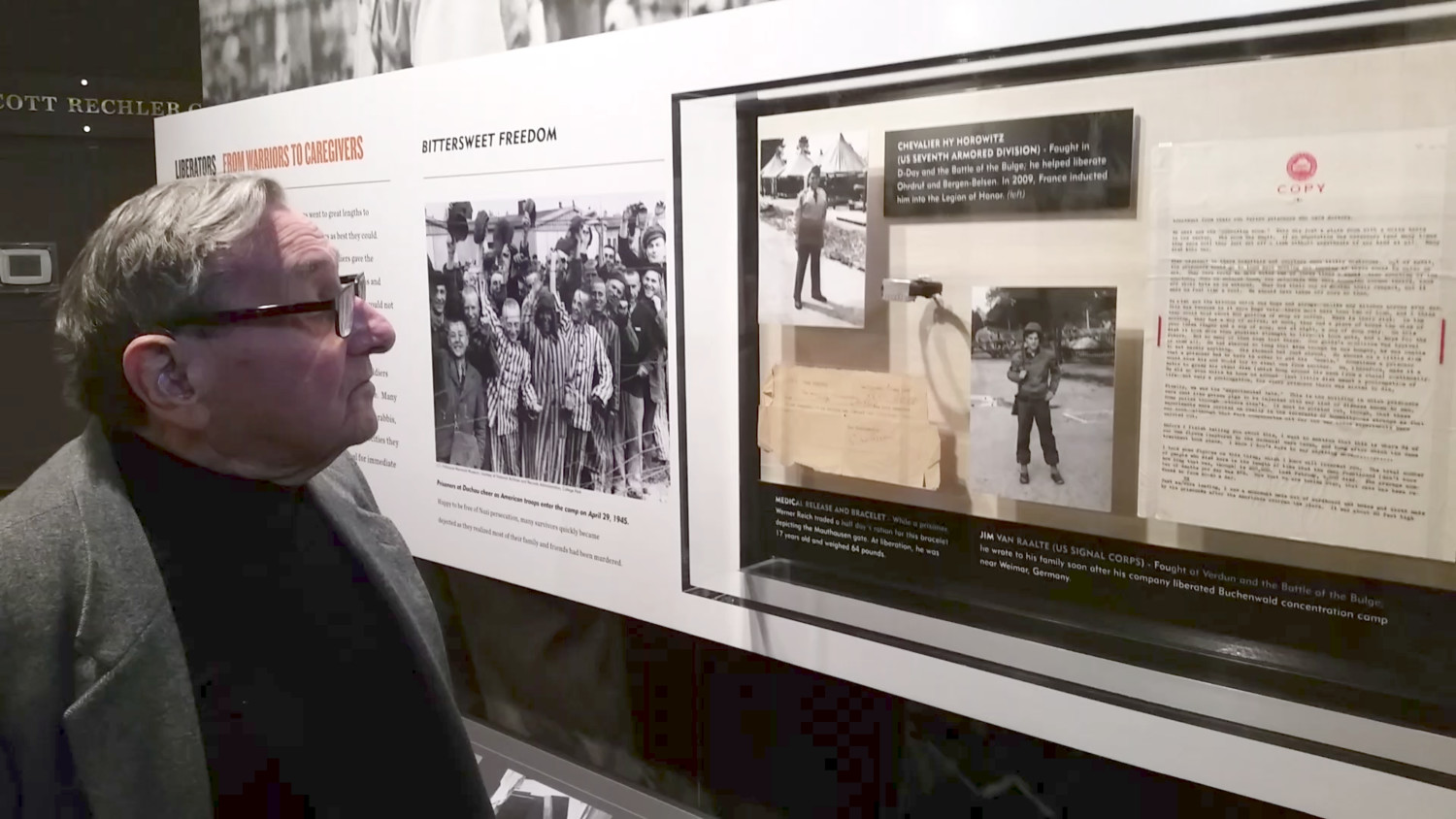Holocaust survivor warns students of bystander effect
Knowing someone who survived the horrors of World War II is incredibly rare, since the war was nearly a lifetime ago. This past spring, however, students, teachers, and faculty of East Meadow High School were given the opportunity to hear from Holocaust survivor Werner Reich.
In addition to sharing his experiences Reich defined what he hoped could be learned from the Holocaust. Adolf Hitler lived his life believing that a person’s characteristics were determined by their racial and ethnic identity. Instilling this belief into his followers, Hitler convinced millions that they had to eliminate Jews, and other “outsider” groups that did not fit into his “ideal race.”
Reich explained that “If you repeat a lie often enough, people will start to believe it.” The creation of false stereotypes planted the seeds of evil and created an opportunity for Hitler to do far more damage.
Reich develops this through the example of the many Nazis who wrote anonymous letters that caused innocent people to take their lives. Reich compares these letters to cyberbullying on social media to illustrate that there are timeless lessons to learn. He adds the Nazis “enjoyed senseless destruction, they enjoyed humiliating, but what was even worse were the bystanders that did nothing, indirectly protecting the bullies.”
For every one Jew in Germany, there were 133 Germans, and for many, the Jewish presence created fear. As the Nazis arrested people from targeted groups and placed them into concentration camps, as they arrested 3,000 Catholic priests and shot them, as they arrested people of color, and as they lined up Gypsies and shot them, “the good people still did nothing,” Reich said. “The world wouldn’t say a word.”
Not only does Reich hope others will realize the dangers of ignorant beliefs, but that they will also understand that indifference is equally damaging, he said.
“At just the age of sixteen, I didn’t know one day to the next if I was going to be alive,” Reich told students. Prisoners were put into camps and the meals that they ate only added up to about 400 calories a day, which was barely enough to sustain them. They were given two ounces of bread flour for breakfast. Lunch was soup with dirty unwashed potatoes and dinner was the same soup and bread. Reich contends that he was luckier than others; he was transferred to Auschwitz, where he fed and washed horses.
There, he was able to take advantage of the leftover food the horses did not eat, while about 5,000 others were sent to death in the gas chambers not so far away. As Soviet troops approached and liberation was near, Nazi Secret Service units began the final evacuation of the prisoners from the Auschwitz camp and marched toward the interior German Reich. This was a forced evacuation, also known as the “death march.”
In January of 1945, after a weeklong 35-mile death march in what was the coldest winter on record, Reich states “people were dying left and right.” While many were begging for help, Reich said, “you couldn’t help them or else you were putting your own life at risk.”
They were exposed to the cold air for four days straight. Reich shared that after three days, his feet started to rot as a result of how much walking they were forced to do. In order for him to get better, the doctor had to cut off his toes, which turned out to save his life. At the time of the death march, he was only seventeen years old and weighed 64 pounds. Reich and the other prisoners eventually ended up in Mauthausen, Austria, where they were told to “go home.” He remembers thinking that he had “no money, no direction, no family, no friends.”
Reich returned to Yugoslavia by train, however, home would not be the same. Yugoslavia before the war according to Reich was “full of opera house theaters, it was a civilized country, the town was a typical enactment,” but when he returned 75 percent of the population was illiterate. In 1955, Reich would marry and move to England. In England it was also not easy for him to make a living because he had no schooling, no skills, and could not speak the English language. When he was finally able to make enough money, Reich and his wife immigrated to the United States, where he intended to start a new life for his family. He went to school for ten years, attending classes every night in order to become an engineer.
As Martin Luther King Jr. once said, “in the end we will remember not the words of our enemies but the silence.” For Reich, it is this quote that expresses how being the first one to act in any situation can make a difference. History supports the idea of bystanders being just as oppressing as the oppressors themselves. Maybe if more people had the courage to defend the lives of the persecuted, the Holocaust would not have reached the tragic severity it is known for, Reich said. Being an upstander, even in the most simple of acts, can change at least one person’s life.
Julia Cuttone is a contributing writer for the East Meadow Herald. She is an incoming senior at East Meadow High School and hopes to pursue writing in the future.

 47.0°,
Mostly Cloudy
47.0°,
Mostly Cloudy 




